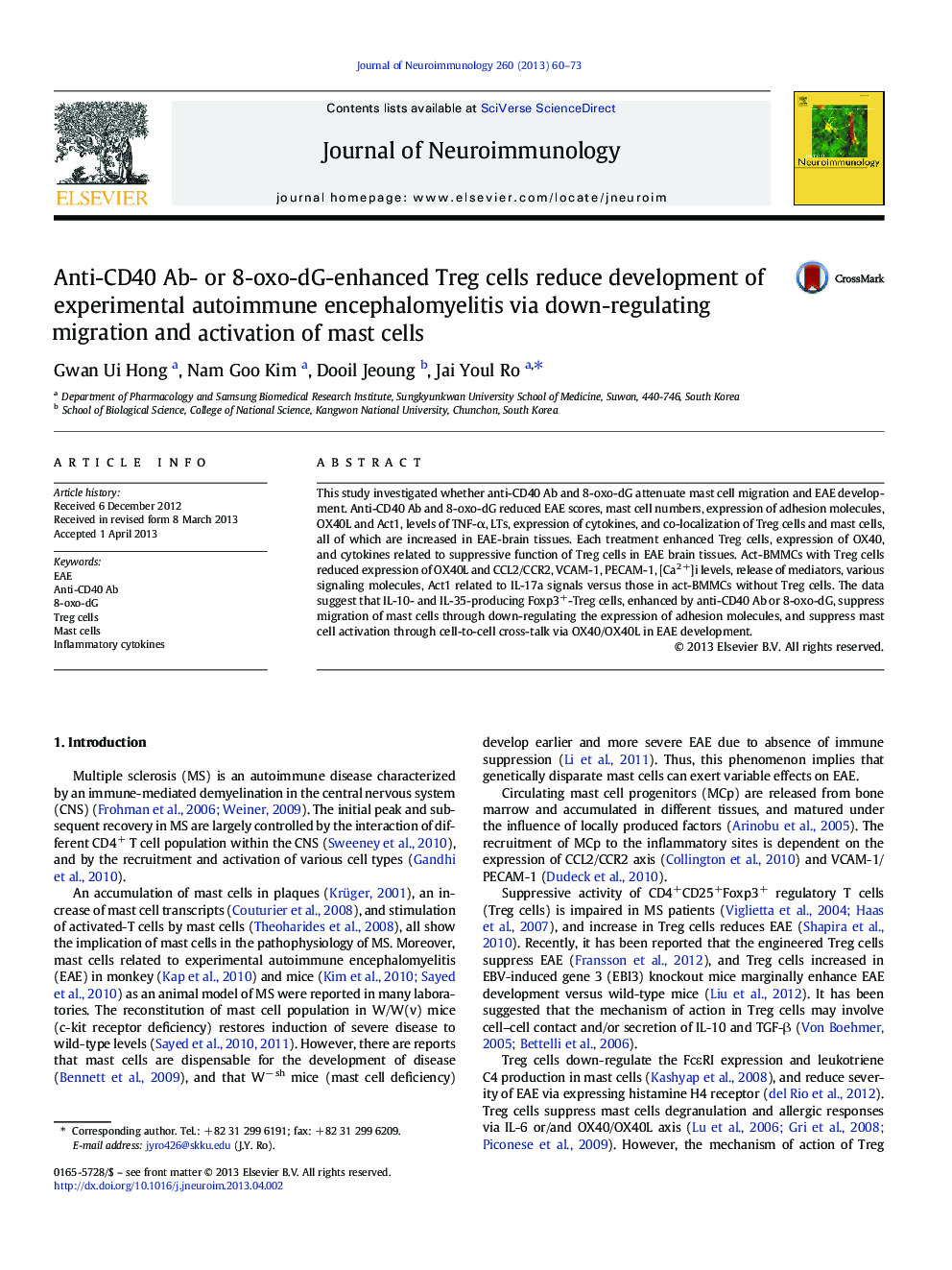| Article ID | Journal | Published Year | Pages | File Type |
|---|---|---|---|---|
| 3064273 | Journal of Neuroimmunology | 2013 | 14 Pages |
•Anti-CD40 Ab or 8-oxo-dG enhances IL-10- and 35-producing Treg cells in brain tissue.•Treg cells reduce mast cell migration via inhibiting the expression of CCL2/CCR2.•Treg cells suppress mast cell activation by cell-to-cell cross-talk via OX40/OX40L.•Anti-CD40 Ab or 8-oxo-dG contributes to inhibiting the development of EAE model.•Treg cell enhancement may be developed as a therapeutic agent for multiple sclerosis.
This study investigated whether anti-CD40 Ab and 8-oxo-dG attenuate mast cell migration and EAE development. Anti-CD40 Ab and 8-oxo-dG reduced EAE scores, mast cell numbers, expression of adhesion molecules, OX40L and Act1, levels of TNF-α, LTs, expression of cytokines, and co-localization of Treg cells and mast cells, all of which are increased in EAE-brain tissues. Each treatment enhanced Treg cells, expression of OX40, and cytokines related to suppressive function of Treg cells in EAE brain tissues. Act-BMMCs with Treg cells reduced expression of OX40L and CCL2/CCR2, VCAM-1, PECAM-1, [Ca2 +]i levels, release of mediators, various signaling molecules, Act1 related to IL-17a signals versus those in act-BMMCs without Treg cells. The data suggest that IL-10- and IL-35-producing Foxp3+-Treg cells, enhanced by anti-CD40 Ab or 8-oxo-dG, suppress migration of mast cells through down-regulating the expression of adhesion molecules, and suppress mast cell activation through cell-to-cell cross-talk via OX40/OX40L in EAE development.
